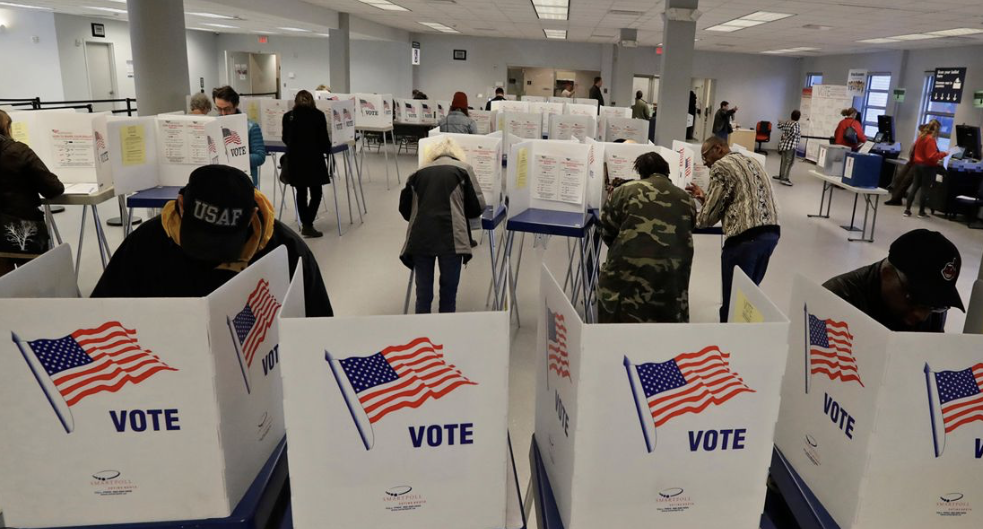Doctor, lawyer, veterinarian, teacher. These are some of the most common dream jobs among elementary school students, and yet, one of them is not like the others. Not many would bat an eye if a professional in any of those fields claimed to be making six figures a year, except the last one. No, in most parts at least, that would turn some heads.
“I know a lot of teachers that have had second jobs at one time or another, if not continuously, like me,” English teacher Camille Davis said. “I’ve continuously had to have two jobs, because there’s just not enough money.”
For teachers, it seems that most of them make up the financial deficit by holding two or three jobs at a time. Davis has had plenty of first-hand experience with this issue, having held several supplementary positions over the last few years.
“We were always needing extra money, and I heard about VIPKid, which is an online teaching thing where you can teach kids in China English,” Davis said. “Because I couldn’t do it during the day, and their hours were different from mine, I would get up at 3:30 in the morning.”
But sometimes even a second job isn’t enough. Davis, despite her already established responsibilities to VIPKid, added additional adjunct VLA classes around the beginning of the Covid-19 pandemic. She’s not alone in having held a few jobs either. History teacher Justin Cross’s resume doesn’t just stop at ‘teacher.’ While in education, Cross has worked creating farmhouse furniture and has run a pet waste removal business to supplement his teaching paycheck.
“I have to have something on the side. I’ve got to at this point, and that’s with my wife having a decent income, more than me,” Cross said. “If I didn’t have two side gigs, we didn’t have two salaries and there were medical issues, there’s no way we could pay for this stuff based on a teacher’s income.”
But juggling so many positions often takes a toll on teachers. Most of the time, the lifestyle just isn’t sustainable. Davis has since left behind her role with VIPKid in an effort to alleviate the stress she’s associated with it and to keep her focus on the community around her, putting more energy now into her VLA and regularly scheduled classes at FMHS, where she can still teach ESL.
“My health was starting to get really bad,” Davis said. “I would look at myself in the mirror during that time period when I had three jobs, and I didn’t recognize myself because everything was just drawn, tired.”
Science teachers Bo Drews and Kathleen Wolf have also divided their time between teaching and second jobs. Drews, until very recently, worked as a select soccer coach, while Wolf has run a pet business behind the scenes. Drews has since left coaching after his daughter retired following an injury, and despite being able to make things work without it, he is still upset by the status quo surrounding inadequate pay for teachers.
“I get frustrated looking at my friends who aren’t educators, who went and worked in the private sector, who don’t work as hard as me, and who make three times as much money as I do,” Drews said. “And I feel like our job is very important.”
Like Cross, familial support has allowed Drews and his family to move on from his job outside of teaching. He’s unsure if he would’ve been able to leave coaching behind if the circumstances were different.
“If there were two teachers in a family, I don’t know how you could get by on a teacher’s salary and live in this area. It would be really, really hard. So then, 1,000%, I’d probably have two or three teams if we were both teachers,” Drews said.
Wolf, on the other hand, intends to keep her second job, allowing her to keep her options open as she heads into the next few years of teaching.
“If I didn’t have another income coming in, mostly I’m focused on retirement, I could get by, but I couldn’t save. As a teacher, most of my life I haven’t been able to save because it’s just check to check to check,” Wolf said. “But once I’ve gotten older and I’m not supporting my daughter as much, it’s gotten a little better.”
With current teachers compensation, it’s no surprise that the education industry continues to face staffing challenges. Some teachers see that trend strengthening around them.
“I think less and less people are going to go into education, and the only thing most people look at when they’re choosing a field to go into is pay,” Wolf said.
Davis shared that, after her family saw how hard she worked in this profession, despite the variety of rewards that come with it, not one of her kids is interested in teaching.
“And that makes you wonder,” David said, “what’s going to happen to education? Are they just going to let everyone teach themselves using their phone and their computer? What kind of world would that look like?”
According to the LISD website, as of the 2023-24 school year, the Board of Trustees has approved a salary increase among staff of 3% from the midpoint, with the starting teacher salary now $60,850.
“So I think the district does what it can, but if you haven’t heard, we’re in a budget crisis right now,” said Principal Chad Russell. “We’re working off of a $48 million deficit budget, and the per pupil allotment that we get from the state of Texas has not gone up, but everything else has gotten more expensive.”
Nevertheless, Russell is confident that teachers will receive as much compensation as is possible, even while the district works to balance current affairs.
“The overall residual will work its way to compensation packages, because we’ve got the best staff in the state of Texas across our district, and we need to compensate them so we can keep them,” Russell said.
If nothing else, these ongoing issues among educators ensure at least one thing: those that have been able to stay have a passion for teaching and are the kinds of teachers that FMHS will count on moving forward.
“I teach because of all the jobs I’ve had,” Davis said, “teaching doesn’t feel like work – it’s fun. That’s why I do it.”





